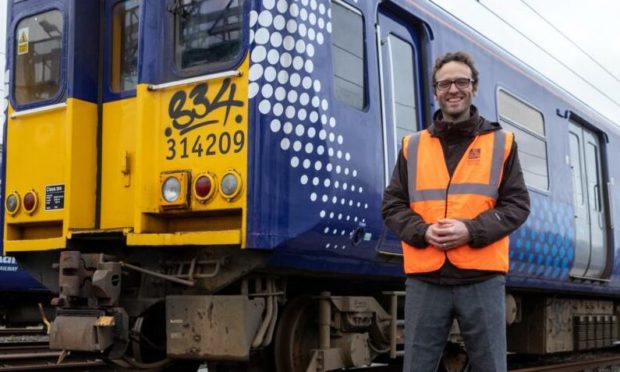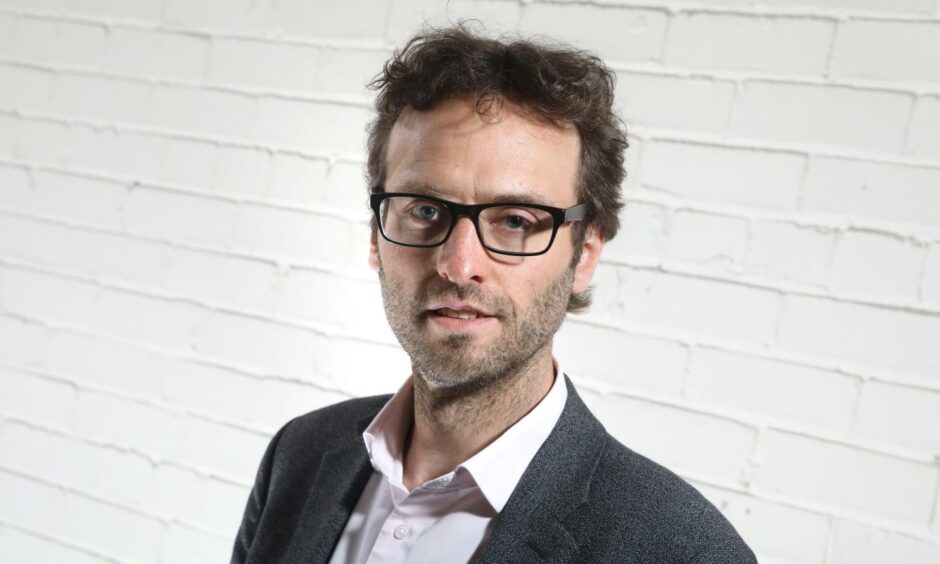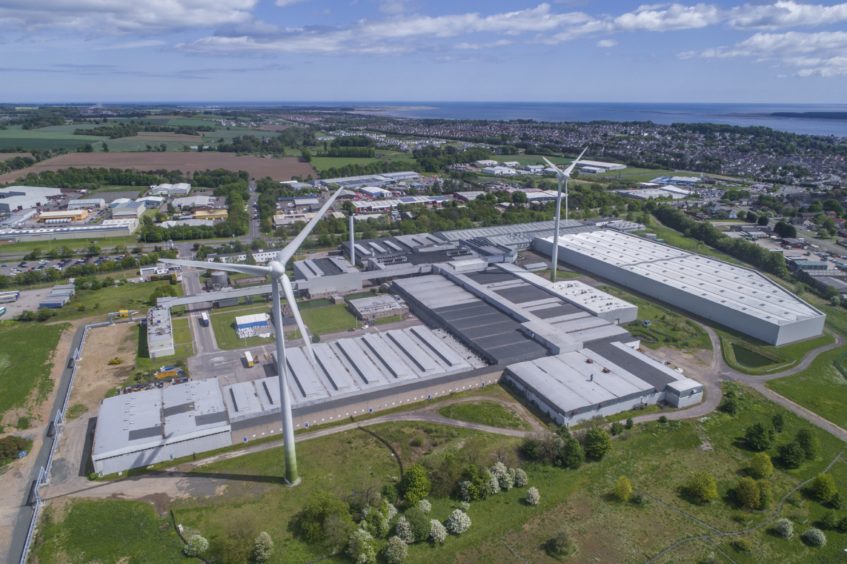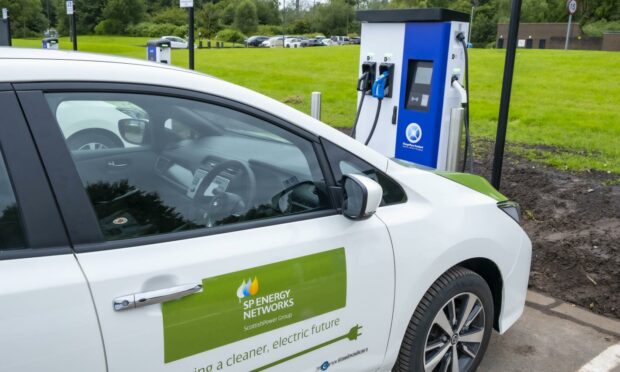The boss of hydrogen engine firm Arcola Energy has set out his vision to transform heavy goods vehicles with 135 staff in Dundee.
Arcola Energy is based at Michelin Scotland Innovation Parc (MSIP), where it will develop zero emission engines for vehicles and trains.
The firm is building its first production and manufacturing site and will create 135 jobs in Dundee in the next three years.
Work has started on fitting out the facility which will work on 12 hydrogen buses for Dundee and 19 bin lorries for Glasgow City Council.
Why hydrogen vehicles?
The man behind the first major tenant at MSIP is founder and chief executive Ben Todd.
Ben’s interest in hydrogen fuel cells started when he was a student looking at how to make power stations cleaner.
As the technology developed, Ben became frustrated that vehicle manufacturers were not moving fast enough to phase out petrol and diesel.
So, he created Arcola to speed up the transition into hydrogen.
He says: “Our objective is to have an impact on transport emissions.
“In order to have any kind of meaningful impact you need to do thousands of vehicles.
“Doing two or three is a great way to start, even 20 is a very good and important start, but there’s thousands of vehicles in Scotland.
“Dundee would be the manufacturing and development site for that work.”
The firm rebuild engines in heavy-duty vehicles, trains and buses to make them run on hydrogen rather than petrol or diesel.
Going forward, Arcola will also build vehicles and the site will become a service centre.
Ben hopes to recruit more than the initial 135 jobs in Dundee after a few years.
How does the Arcola hydrogen technology work?
Arcola Energy take out the old diesel or petrol systems and put in hydrogen fuel cells and a battery.
This turns the car into an electric vehicle.
But instead of plugging it into the mains to recharge, it has to be filled up with hydrogen to run.
There's light at the end of this tunnel 🚇
@arcolaenergy's CEO, Ben Todd shares the progress on Scotland's first hydrogen train in Bo’ness.
Supporting Scotland’s efforts to net zero is a priority for us. Find out how 👉 https://t.co/rjW4VIIK0o #ClimateAction #NetZero pic.twitter.com/G3yTmsdTDm
— Scottish Enterprise (@scotent) July 12, 2021
Ben explains: “Working backwards from the wheels, it’s an electric car.
“You’ve got an electric motor driving a wheel. Working from the other end it’s like a diesel vehicle.
“You get a nozzle and you put some fuel in and in between is the fuel cell, that’s the magic bit.
“Hydrogen fuel plus oxygen from the air and by electric chemistry, no explosions, no setting fire to anything, it directly makes electricity to drive the motors and charge the battery.”
Hydrogen is preferred for larger vehicles, as it is more energy dense than batteries.
Therefore, lorries, buses and trains can go for longer without refuelling when running on hydrogen.
More hydrogen cars in the future
Scotland is aiming to reduce greenhouse gas emissions to net-zero by 2045.
Banning the sale of new diesel and petrol cars by 2030 aims to help reach the target.
Within the next 10 years, Ben believes “an awful lot more” electric and hydrogen cars will be on Scottish roads.
He says: “If you look at the emission issues we’ve got, air pollution by burning petrol and diesel in cities, that’s a big driver.
“And if you look at climate change policy, that’s a big driver.
“Things have to happen quickly and you’ve got to deliver it.”
Currently seven staff are on site fitting out the manufacturing facility.
Work on Scotland’s first hydrogen train will be one of the first jobs on site as recruitment continues.



